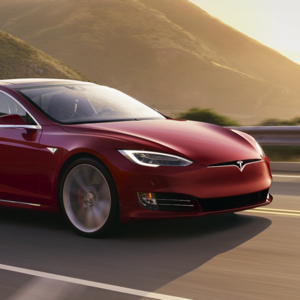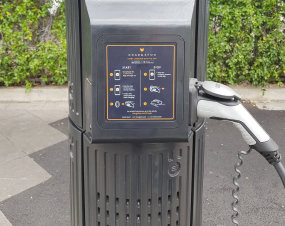What will it take for widespread, world-changing electric vehicle adoption? With batteries making up a huge percentage of EVs’ total cost, the $100 per kWh figure has emerged as the key measure to bring EV prices on par with combustion. With recent reports suggesting it might be closer than ever, we take a look at battery production and the significance of the milestone.

Electric vehicle economics are a tricky business for even the most seasoned experts and investors. Even the world’s largest automakers are split on what the future holds. Toyota are backing hydrogen, Honda are dragging their feet, and now Volkswagen are going all-in on electric with the ID.3.
But if those same automakers can secure lithium ion battery cells for $100 per kWh (USD, so about $150 AUD), most estimates agree that EVs become the most affordable choice for the world’s personal transport needs. The wisdom goes that, at this price, the cost of manufacturing EVs is low enough for them to be cheaper than combustion equivalents over their lifetime.
The figure has come back into the attention of commentators this month after the New York Times published a piece alleging that an unnamed Volkswagen executive had confirmed their ID.3 was being manufactured with sub-$100 batteries, and that VW brand COO Ralf Brandstätter “grinned” when asked about the figure. They neglected to clarify whether that price was for cells or completed battery packs.
Which is an important distinction. The per-cell price of lithium ion for EV production is inevitably cheaper than the same power in completed packs, which can lead to some misleading headlines. Tesla got some attention in 2018 after their Nevada Gigafactory approached the coveted figure for cell manufacture.
Audi development director Peter Mertens said in 2017:
“Currently one kilowatt hour costs about 100 euros, depending on the model. Only when we come well below this price will e-mobility also be interesting in volume segments.”
Two years later and the Audi e-tron still hasn’t landed in Australia, and certainly isn’t coming at a crowd-friendly price at an expected $140,000.
However much VW are paying for their batteries, they’ve definitely brought down the price of their new signature EV. The 45 kWh base model is expected to retail for less than €30,000 when they launch next year, making the hatchback almost €5,000 cheaper than the Hyundai Ioniq EV in the same market. The Ioniq is currently Australia’s lowest priced EV.
What’s new in the 2020 Hyundai Ioniq
Volkswagen are uniquely positioned to achieve and capitalise on the $100 per kWh battery pack. Practically neck-and-neck with Toyota for the world’s top automaker crown despite the bruising dieselgate scandal, they’ve made an explicit and expensive switch to EV tech leading up to the 2020s — something Toyota has repeatedly stalled on.
Chasing the perfect electric vehicle battery
They’ve confirmed a partnership with Northvolt, a battery company founded by former Tesla executives, to construct a 16 GWh battery cell factory in Salzgitter, Germany. Volkswagen offered a 900 million euro investment for a 20% stake in the company and a seat on their board.
Meanwhile Tesla are investing heavily in battery manufacturing to bring down the costs of their vehicles. They’ve spent years now constructing Gigafactory locations in Nevada, New York, and Shanghai, with plans to build another in Europe. Each Gigafactory will be able to produce dozens of gigawatts (hence the name) worth of battery cells per year for Tesla vehicles.
In April this year Musk confirmed that the Gigafactory 1 in Nevada was operating at ~⅔ of its theoretical 35 GWh/year capacity at the time. When the complex is complete it’s projected to produce over 100 GWh/year — i.e. one million Teslas at a sizeable 100 kWh each.
Signs are good for battery production worldwide. When a $100 per kWh battery can be produced en masse, customers will be ready to buy it. So even if recent reports are exaggerated, the weight of investment will continue to push price down and bring the world closer to mainstream electric mobility.
Check out more EV news and updates on the JET Charge blog. You can contact us at info@jetcharge.com.au with personal EV charging inquiries or follow our Facebook page for regular updates.





